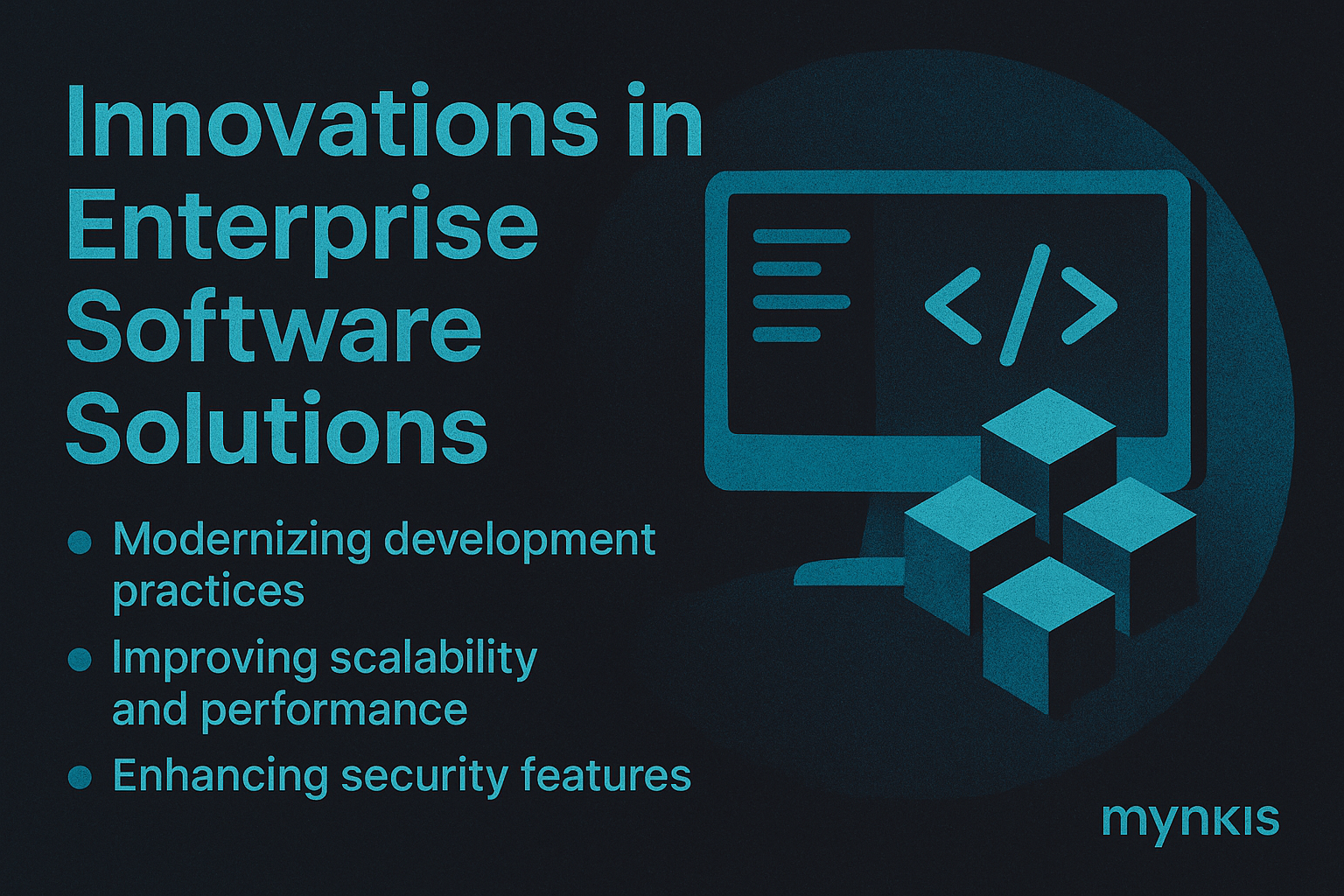Schedule a Demo
In my years working with operations managers, I've seen firsthand how innovation drives business success. Within the realm of large organizations, staying ahead means continually embracing new methods and technologies. It's not just about keeping pace—it's about setting the pace. Innovative software development, especially in custom enterprise solutions, can transform operations, boost efficiency, and, ultimately, lead the industry forward. Custom software development isn't just a tool; it's a strategy for enterprise leaders aiming to revolutionize how their businesses function and engage with customers.
The Model-View-Controller (MVC) architectural pattern has, hands down, changed the game for software development. It provides a clear structure that significantly simplifies managing enterprise-level applications. By separating the application into three interconnected components - the Model (data), View (UI), and Controller (business logic) - development teams can work more cohesively and maintain applications with greater ease. In my experience, adopting MVC leads to faster development cycles, easier debugging, and improved scalability, all crucial elements for enterprise solutions.
MVC isn't just about clear organization; it's a cornerstone for fostering innovation. With MVC, new features can be added and tested without disrupting the entire system. I've observed how this modularity allows developers to experiment with novel ideas without fear of major system failures. For large organizations, this is essential. It means they can push boundaries and incorporate the latest technologies without risking downtime or system instability. As we drive forward in this era of digital transformation, enterprise web solutions utilizing MVC facilitate both incremental improvements and significant leaps in functionality.
When it comes to enterprise needs, there's no one-size-fits-all solution. That's where custom software development shines. I've worked on projects where specific client requirements necessitated highly tailored solutions. Using MVC in such projects allowed for the precise alignment of the software with business processes. This tailoring not only boosts productivity but also ensures that the software integrates seamlessly with existing systems, offering a smooth operational flow that generic software can't match. Through these bespoke solutions, enterprises can truly make their operations their own.
Maintaining enterprise software is no small task, yet MVC greatly simplifies this endeavor. Every large organization knows the importance of quick and efficient updates. I recall a project where implementing MVC reduced the maintenance efforts significantly, allowing the IT team to respond to changing business needs without breaking a sweat. The separation of concerns means developers can work on one part of the application without unintentionally affecting others, making updates and patches more manageable. For businesses operating at scale, this capability can make all the difference in staying nimble in competitive markets.
Let's talk about the developers themselves. Their job satisfaction can significantly affect the software they produce. With MVC, I've noticed a boost in morale and productivity. It encourages best practices by clearly delineating the roles within the code. Developers appreciate this clarity. It empowers them to work on what they're best at without wading through a mess of intertwined code. When you're building enterprise web solutions, this can lead to more dedicated, focused, and efficient development teams.
Consider a recent case where a financial institution used an MVC framework to develop a new investment analysis tool. The team could experiment with advanced machine learning algorithms without impacting the core functionality. This innovation resulted in a tool that outperformed competitors, driving client acquisition. In another scenario, a retail giant implemented an MVC-based customer portal that allowed for dynamic updates and personalization, enhancing user engagement. These cases underscore how MVC fosters a culture of experimentation and adaptability, core to any innovation strategy.
While the benefits of MVC are substantial, implementing it isn't without its challenges. Over the years, I've seen how complexity can increase as projects scale. This issue requires careful planning and adherence to best practices. One strategy is to ensure thorough documentation and clear communication among teams. I recommend regular code reviews and using agile methodologies to mitigate potential pitfalls. Additionally, training sessions for developers unfamiliar with MVC can smooth out the transition and amplify the benefits. Indeed, mastering MVC requires dedication, but the payoff in innovation is unmatched.
The beauty of MVC lies in its ability to integrate with contemporary technologies. For large organizations, leveraging AI and IoT is no longer optional—it's necessary. I've guided numerous projects where MVC was the backbone allowing easy integration of AI algorithms for real-time data analysis. Another exciting example is the use of blockchain within an MVC framework for secure, verifiable transactions. This flexibility not only speeds up development but ensures the software remains at the forefront of technological advancement.
Looking ahead, the future of custom software development for enterprises is bright, especially with MVC. Innovations like edge computing and serverless architectures are on the horizon, and MVC’s architecture is primed to support these developments. I believe that as we explore these new frontiers, MVC's role in facilitating efficient, scalable, and innovative enterprise solutions will only grow. The path forward for large organizations involves embracing these tools, continuing to push boundaries, and always keeping innovation at the core of software strategy.
From the standpoint of a business leader, adopting MVC goes beyond technical benefits—it's an investment in ROI. In my engagements with high-level decision-makers, I often emphasize how the use of MVC accelerates development timelines and enhances software performance. This accelerated innovation cycle leads to quicker market entry and better alignment with business goals. For organizations eyeing high-performance websites or robust internal tools, an MVC approach can elevate the end product's value, justifying the investment many times over.
Lastly, let's consider how MVC fits into the broader landscape of software development methodologies. While it doesn't replace agile, scrum, or DevOps, it complements these approaches brilliantly. I've seen cases where MVC was integrated into a devops pipeline, allowing for rapid iteration and deployment. By marrying traditional discipline with modern innovation, MVC provides a comprehensive framework suitable for any organization looking to enhance their software prowess while maintaining their core business values and processes.
